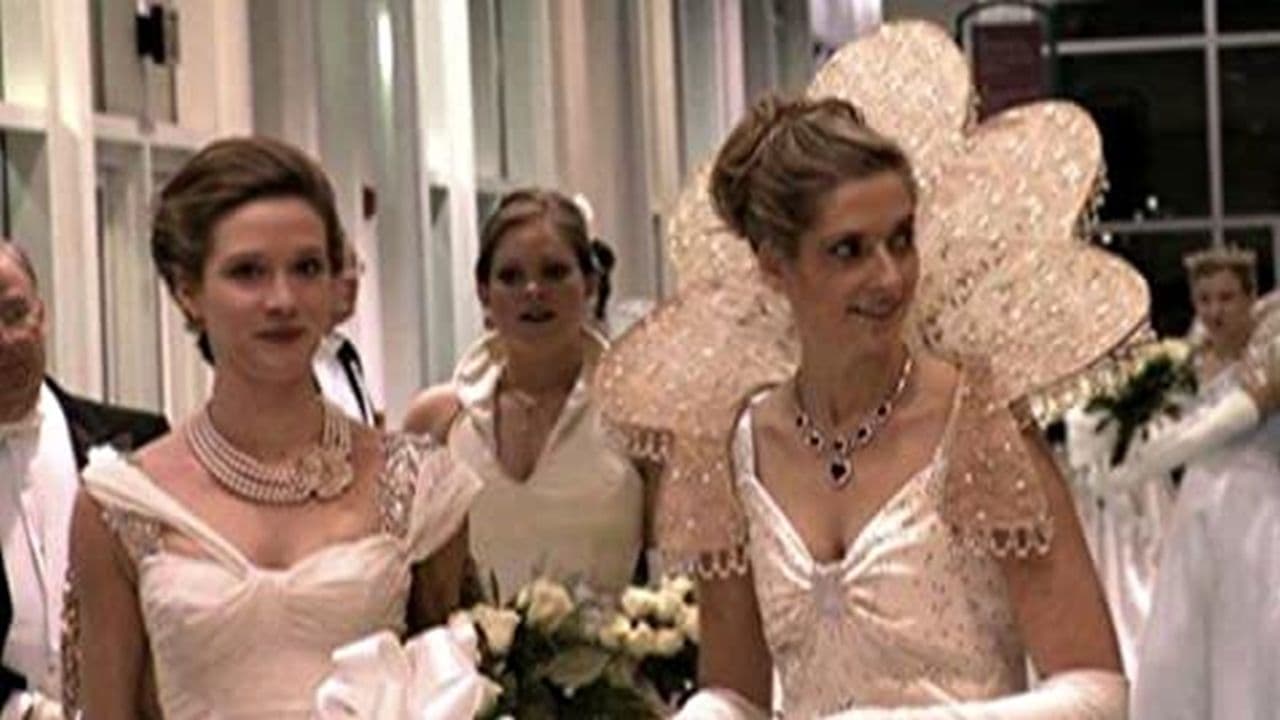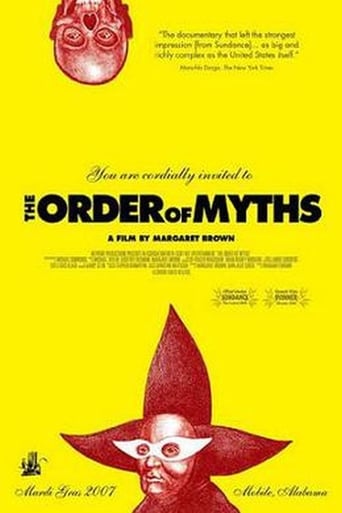

This near-perfect documentary explains the history of the oldest Mardi Gras in America, in Mobile, AL, as well as the current state of traditions in that Southern city. Mardi Gras balls and parade presentations are still almost exclusively segregated. The major strength of this film is that it seems like anyone (black, white, elderly, very young, official and amateur) will talk freely to director Margaret Brown. Compelling interviews, all-access footage, captivating cinematography, and a good score are the major highlights.This film is highly recommended. It will hold your interest and keep you talking about deep issues afterward. Congratulations to the crew, as this is one of those films that any trained filmmaker would have loved to have made this well.
... View MoreIf you think racial segregation is a thing of the past in the good 'ole U.S. of A, "The Order of Myths" should disabuse you of that notion right quick.It's a little known fact that the Mardi Gras in Mobile, Alabama is the oldest such celebration on American soil, predating the one in New Orleans by a number of years (some date it to as far back as 1699). Of far more interest and note is that, to this very day, the Mobile Mardi Gras is presided over by a pair of kings and queens - one white, the other black - with the balls and parades largely segregated along racial lines as well. Margaret Brown's fascinating and eye-opening documentary focuses on the history of the event, along with the intense behind-the-scenes preparations for the celebration in 2007. Brown interviews the respective kings and queens, as well as many of the designers and planners responsible for pulling the event off year after year. Brown also chronicles the many "mystical" organizations who donate money and manpower to the cause (the oldest being The Order of Myths, from which the movie derives its title).Brown has opted not to use narration in her film, preferring to let the people she's interviewing speak for themselves, some articulately, some seemingly unaware of how exactly it is they are coming across - or perhaps they do and just don't care. Yet, no matter how desperately we may want to concentrate solely on the pomp and spectacle of the occasion or to join in the celebration, the images of rooms full of white people and rooms full of black people can't help but color our perception and diminish our enjoyment of the carnival as a whole.Still, it would be easy, I suppose, for outsiders to feel smugly superior to the people on screen, not only for their racist and, in some cases, sexist attitudes, but for their allegiance to traditions that may strike many of us as hopelessly outdated and silly. But Brown avoids turning her movie into an excuse for Southern-bashing and post-Bellum condescension by trying to honestly examine the roots and heritage of the community she's chronicling, not excluding the ugly side as well - the slave trade, the lynchings (including one as recently as 1981), the historic influence of the KKK.So, based on this film, can we conclude that present-day Mobile is a hotbed of racists and bigots? Well, it does have an African-American mayor, and there does appear to have been some small movement towards integrating the festivities in recent years.But in this post-Obama era, it might be incumbent on the fine folk of Mobile, in this one respect at least, to make a little effort to join the rest of us here in the 21st Century.A must-see film.
... View MoreWriter/director Margaret Brown gives an excellent picture of the Mardi Gras traditions in Mobile, Alabama. Along the way she also gives a very good picture of black/white relations in the South even to this day.Most people think of New Orleans when they hear Mardi Gras, but the fact is that Mobile's traditions date to before New Orleans was a city. Mardi Gras is still mostly a Southern tradition, even though it has spread to Texas, San Diego and St. Louis. It's rich history came over from Europe in the 18th Century to Mobile, New Orleans, and Biloxi, Mississippi, where I am familiar with it, having lived there for a few years.Make no mistake, you can't just walk into the white organizations, even if you are white. You have to have familial connections back to the origins of the city. It is a closed society made up of a lot of former slave owners. Brown weaves the story of slaves into her story of the city and the Mardi Gras traditions.It was an excellent peek into some of the traditions of the organizations, both black and white, and of the Mobile society.
... View MoreFrom a daughter of this most interesting city, a love letter as only someone who knows the place could give it to us. An interesting lesson in the evolution of cultural mores and standards over time. Lots of Mardi Gras fun! The inside view of a most interesting event. History, alcohol, well-dressed ladies and gentlemen, incidents of the past remembered and others happening in front of you. Well worth the time of anyone who wishes to understand people better. The picture follows a season of celebration in a community steeped in tradition. Interwoven (mostly quite smoothly) is some context of these traditions told of as they would be to a youngster or trusted stranger, and implied by countless actions observed on the screen. Toward the end it becomes clear that things do change, however slowly. Segregation, for instance, even as ritual, will come to an end. If there is a lesson implied it may be to preserve what you love while remembering everything you can.
... View More